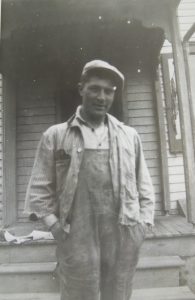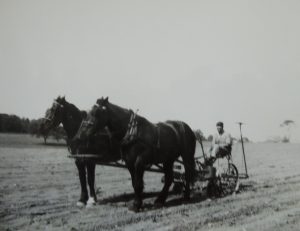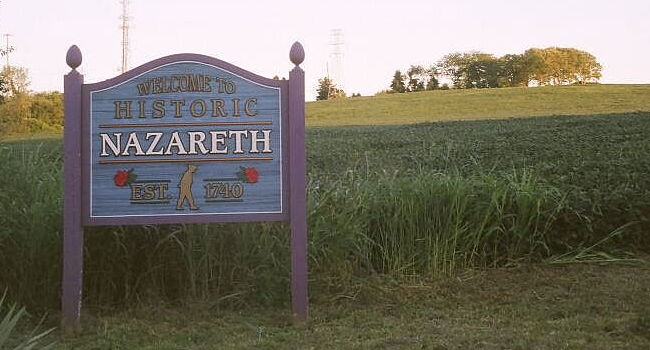A few weeks ago Bob Mentzell, a friend, former outstanding teacher at Northampton High School and current school member, forwarded this writer a series of photographs showing my father, Anthony Pany, working on the Smith Farm in East Allen Township during the Great Depression.

Anthony immigrated to the United States as a youth from Austria. His education in this new country was limited. In order to help his large family, he was hired as a farm hand on the Smith Farm.
The series of photographs depicts farm life in the ’30s. Farm life was quite different during that era. Agriculture lacked the modern equipment of today’s farms. Most daily chores were performed by manual labor. The still used horses to supplement their first tractor, a solid steel McCormack tractor on steel spiked wheels. There was no automatic starter; a hand crank was used to start the tractor.
Corn was planted with a two-row horse drawn planter. The farm was in excess of 100-acres so days were long. The workday had no set hours; you worked until the fields were planted and harvested.
The farm raised corn, wheat, oats and alfalfa. The crops were needed to support the dairy herd and the excess was sold. Prices were very low during the ’30s. All cows were milked manually and the milk was hauled to the Northampton Sanitary Dairy.
Corn was husked by hand so the harvest, on occasion, continued until the first snowfall.
Hay was not baled but loaded on wagons with trusty pitchforks. The farm had a model T truck and automobile.

During the summer, wood was sawed and split for the long winters. They did not have chainsaws. The home was a solid stone structure; there was no central heating system. The kitchen stove was the main source of heat. Water would freeze in the upstairs bedroom; on those cold winter nights, heavy blankets and feather ticks kept you warm.
My father rarely left the farm. The radio, checkers and cards were the main source of entertainment. My father recalled hearing Orson Welles’ “The War of the Worlds” radio show, which was so realistic it frightened many listeners. Welles directed the Mercury Theatre radio dramatizations.
After years on the farm, Anthony would be employed by the Universal Atlas Cement Company and work there for 35 years.
He always reflected on his days on the farm even when he was employed at the Atlas, he remained loyal to William Smith and continued to help him on the farm.









